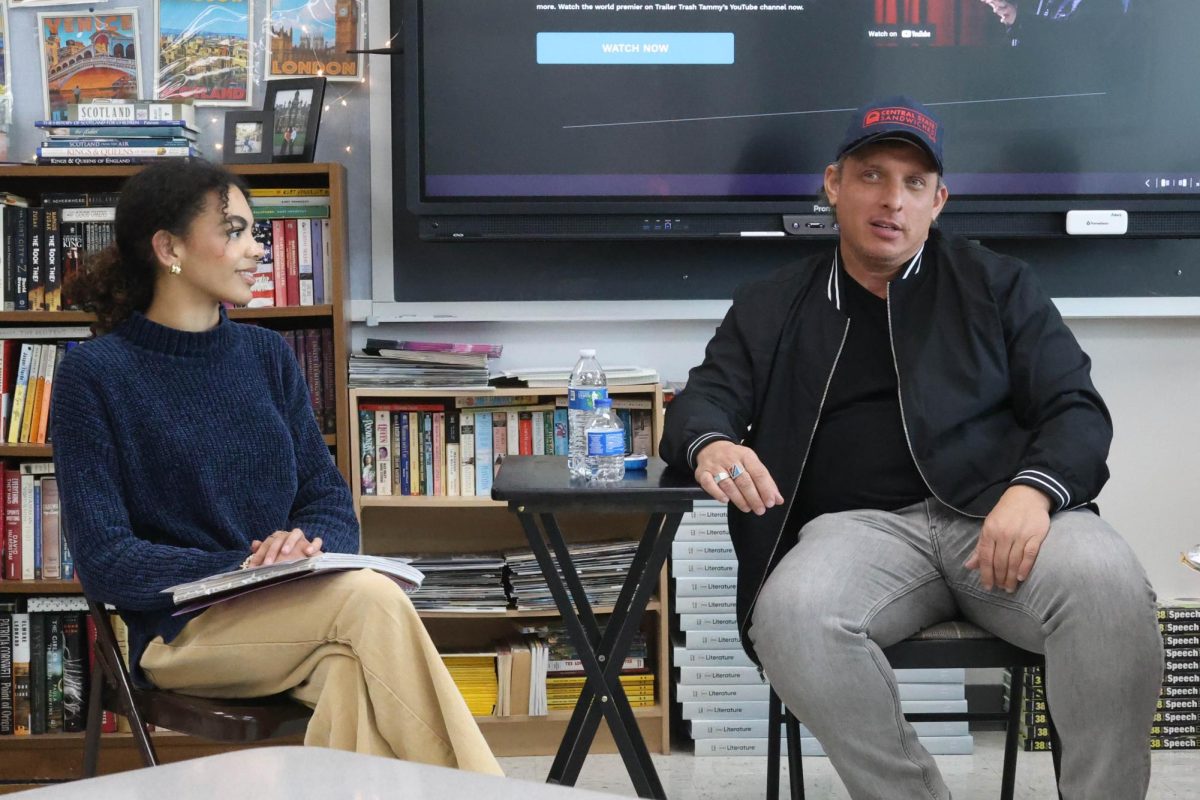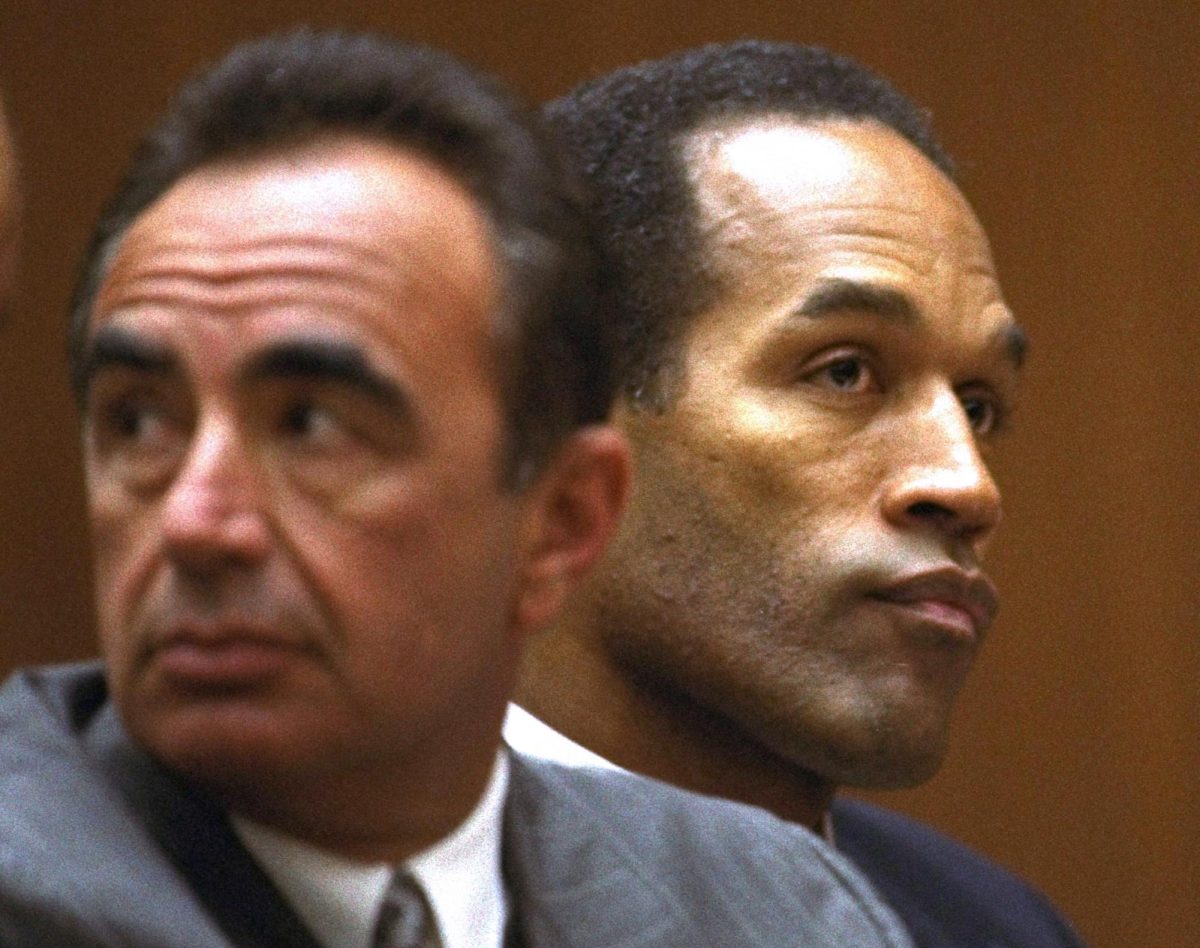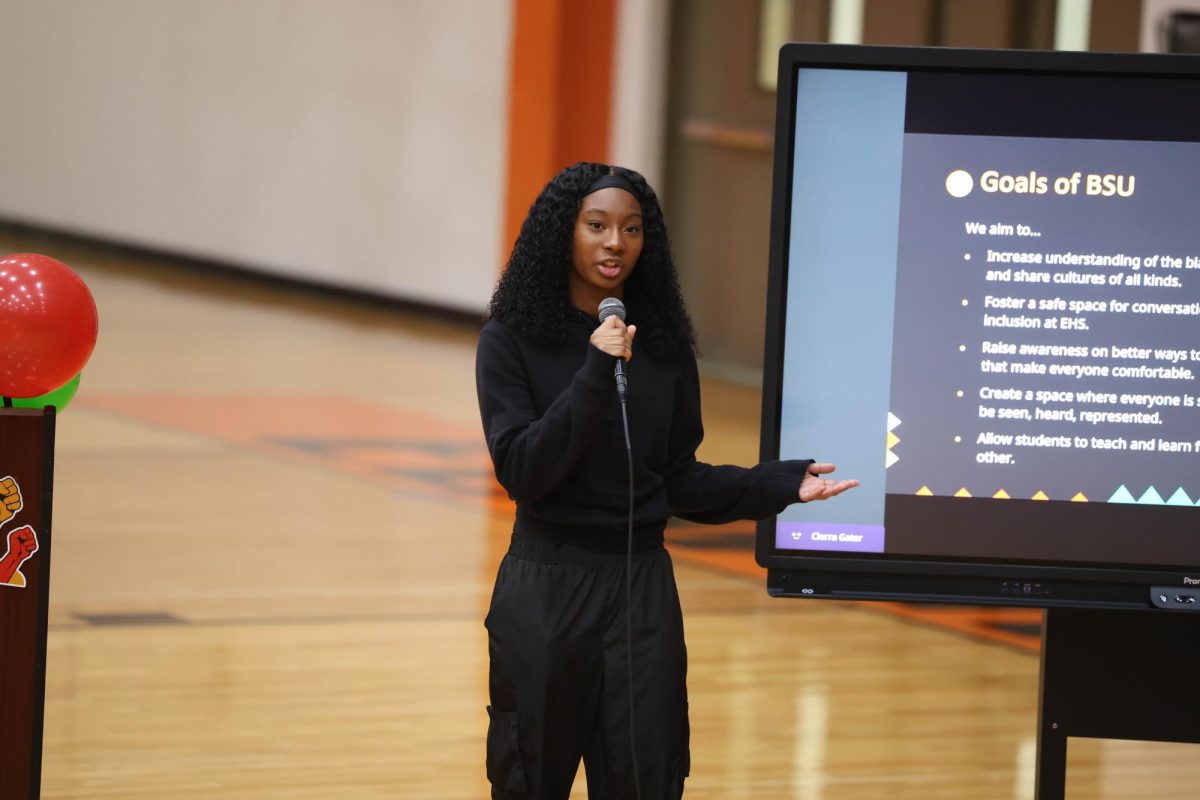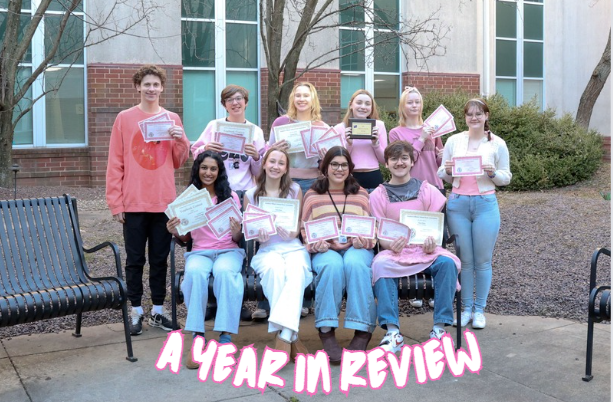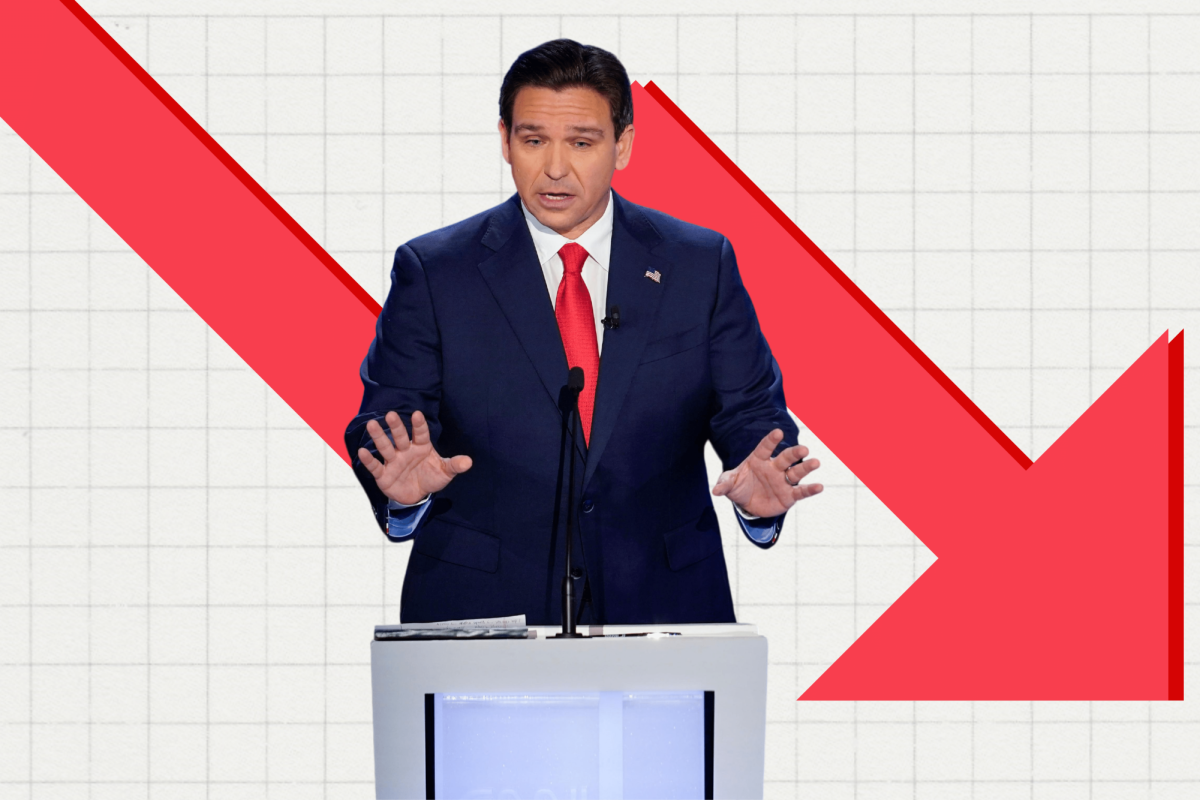Florida Gov. Ron DeSantis announced that he would drop out of the presidential race and endorse former President Donald Trump on Jan. 21 after placing second in the Iowa caucuses.
At one point, DeSantis was projected to be the Republican nominee and even the future president. Now, he’s supporting the man who has spent his time on the campaign trail humiliating him. Where did DeSantis come from, and how did he fall so suddenly?
DeSantis took office as governor of Florida in 2019 after serving in congress for six years, where he took anti-gun control and anti-immigration stances. He was a founding member of the Freedom Caucus, which is one of the most far-right sects of the House, according to Pew Research Center.
As governor, he signed anti-LGBT acts like the “Don’t Say Gay” law and banned transgender women from participating in scholastic sports. He also tried to control Disney’s special districts within Florida as a response to Disney’s opposition to the “Don’t Say Gay” law. Disney then sued DeSantis.
“DeSantis has made culture wars a priority as he gears up to run for the White House,” said Anthony Izaguirre and Brendan Farrington of the Associated Press in April 2023.
According to the same article, DeSantis used the laws and legal battles as a springboard for his campaign. DeSantis was seen as a front runner for the ticket as early as 2020, according to the New York Times and Politico. As Trump became mired in lawsuits and court proceedings, DeSantis was seen as “more electable than Trump” by the Associated Press.
DeSantis’ platform focused on reducing government spending and decreasing inflation, while also supporting domestic energy production and reducing overall federal power, according to Ballotpedia.
He said that the United States needed to “re-establish integrity” in its government, indicating his lack of faith in the Trump and Biden administrations, and released a campaign ad titled “Defeat the Elites,” in which he tries to set himself apart from wealthy politicians.
“I am running for president of the United States to lead our great American comeback,” he said when launching his campaign in May 2023.
It was DeSantis, though, that needed a comeback after polling behind Trump by 45 points in the Conservative Political Action Conference straw poll in August 2022. So, he decided to double down on fighting culture wars.
In January 2023, Florida banned a new high school course that focuses on African-American studies, as it violated DeSantis’ then-new “Stop WOKE” act, which restricts discussing some race-related topics.
The state’s commissioner of education, Manny Diaz Jr., said that the course was rejected because it was “filled with Critical Race Theory and other obvious violations of Florida law” and that while the state welcomes the teaching of African American history, they will not allow “woke indoctrination masquerading as education.”
Furthering his anti-LGBT lawmaking, DeSantis signed multiple anti-transgender bills, including a ban on gender-affirming care for minors, May 17, 2023, a week before announcing his campaign.
Though DeSantis made moves to market himself as a staunch anti-woke candidate before he ran, he didn’t continue to fight culture wars while on the campaign trail.
Given his dwindling campaign funds, DeSantis was careful and chose to focus on the Republican primary debates to gain an edge over other Republican hopefuls. This lack of action gave him fewer talking points during debates, as he had to rely on his gubernatorial record instead of new political moves.
In the first Republican debate, DeSantis was reserved and didn’t engage in many back-and-forth arguments with other candidates. PBS said that his relative quietness left him “overshadowed” by other candidates and that he was largely “in the background.” Forbes added that he “side-stepped” questions about Jan. 6, and NBC said that no one on the stage bothered to attack him.
“It speaks volumes that just months after being the co-front-runner of this race, Ron DeSantis has fallen so far that none of his seven opponents onstage felt the need to attack him but instead went after a first-time upstart,” GOP strategist Matt Mowers told NBC.
After three more debates in which he gained little ground, DeSantis decided to focus on succeeding at the Iowa caucuses. According to NBC, he invested “enormous” amounts of money and was the only candidate to campaign in every Iowan county.
Still, he received only 21.2% of the vote, losing to Trump by 30 points. Within the next week, he announced the end of his campaign.
“I’m proud to have delivered on 100% of my promises,” he said when announcing the suspension of his campaign. “I will not stop now. It’s clear to me that a majority of Republican primary voters want to give Donald Trump another chance.”


